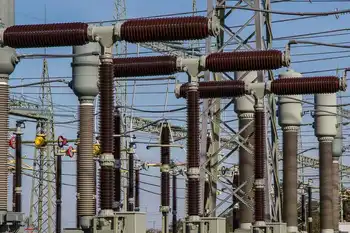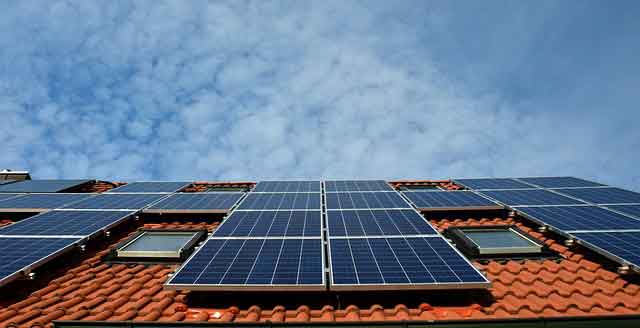The latest from the shopping network: solar power
By Raleigh News & Observer
Electrical Testing & Commissioning of Power Systems
Our customized live online or in‑person group training can be delivered to your staff at your location.

- Live Online
- 12 hours Instructor-led
- Group Training Available
QVC is operating the state's largest solar energy farm at its distribution facility near Rocky Mount. The QVC solar project is selling the electricity it generates to N.C. Electric Cooperatives, the Raleigh organization that supplies power in the state's smaller towns and rural areas.
The 1 megawatt solar farm generates electricity for about 150 homes. It operates only when the sun is shining, an average of about six hours a day.
QVC proposed the solar farm this year to its utility, Edgecombe-Martin County Electric Membership Corp., a cooperative that serves more than 11,000 customers east of Raleigh. That local cooperative then passed the proposal on to the umbrella group in Raleigh to discuss terms.
The timing was good, because the electric cooperatives are required by a 2007 state law to develop efficient energy as well as solar power and other renewables. Co-ops in the state serve a total of 923,000 electricity customers in 93 counties, including Wake, Chatham and Orange.
"We're looking at various sizes of solar farms and other technologies," said Bob Goodson, an executive with the electric co-ops.
The solar farm is on the grounds of QVC's 1.5-million-square-foot regional distribution center, which employs about 1,300 people.
QVC's photovoltaic project is quipped with a global positioning system that mechanically tracks the sun throughout the day and rotates the assembly for maximum sun exposure.
The company is exploring other alternative energy options, QVC President and CEO Mike George said in a prepared statement. "It was critical for us to pursue ways to make our operations greener," George said.
QVC, based in West Chester, Pa., disclosed the solar farm in an October notice to the N.C. Utilities Commission. The project began operating last month. It did not require approval from the utilities commission, because state laws exempt renewable-energy projects that produce 2 megawatts or less.
Goodson said the contract with QVC is for 10 years. The co-ops are exploring energy generated from solar and animal waste to meet the state requirement for renewable energy. Because it is more expensive to generate energy from alternative sources than from conventional power plants, state law allows power companies pass the cost along to their customers.
The QVC facility was installed and designed by Southern Energy Management in Morrisville and by SunPower in San Jose, Calif.
This year, solar energy has emerged as the leading renewable resource in the state. It won't be long until future solar projects surpass QVC's in scope.
In coming weeks, Progress Energy, based in Raleigh, expects to start buying electricity from two solar projects: a 1-megawatt solar project on the Cary campus of software developer SAS, and a 1.2-megawatt solar farm at a Progress Energy power plant complex near Wilmington.
Duke Energy, based in Charlotte, plans to buy elecrticity from what will be the nation's largest solar farm: a 16-megawatt project planned in Davidson County. Duke is also seeking approval from state regulators to develop its own 8-megawatt project on 425 rooftops and other sites around the state.
These projects appear paltry when compared next to the 900-megawatt Shearon Harris nuclear plant, but by 2021 renewables and energy efficiency programs will have to account for 12.5 percent of Progress' and Duke's retail sales in the state, under the state renewables law. The co-ops will have to meet a 10 percent renewables and efficiency goal in 2018.
The benefits of solar energy are no pollution and no greenhouse gas emissions. But solar power is one of the most expensive forms of alternative energy, costing several times more than conventional electricity. The terms of the contract between the co-ops and QVC are confidential.
The co-ops are also reviewing projects that convert North Carolina's swine waste into a fuel source for electricity. And they're subsidizing 1.5 megawatts of electricity generated from wind power in Iowa. In the Iowa project, the co-ops are not buying electricity, only subsidizing a Midwestern wind farm that sells power locally.
The co-ops are also running a half-dozen pilot projects in the state to test the potential for energy efficiency programs. They are testing programs to promote solar water heaters, hand-held power-cost monitors and energy-efficient lighting.











